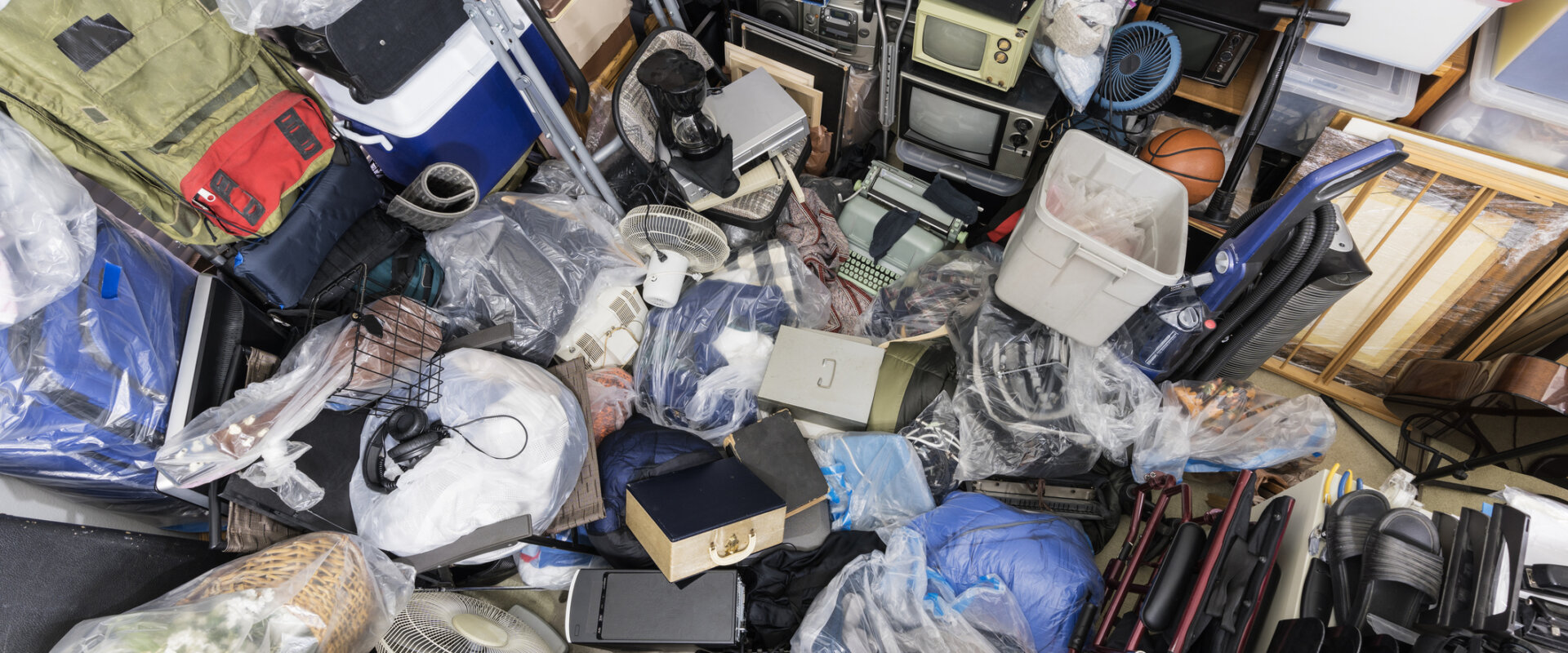What leads to “Hoarding”
There are several contributing factors that can lead to a homeowner accumulating an excess of belongings and trash in their home. These factors can vary from individual to individual, but some common ones include:
Hoarding tendencies: Hoarding disorder is a psychological condition characterized by an excessive need to acquire and retain items, regardless of their value or usefulness. People with hoarding tendencies find it challenging to part with belongings, leading to an accumulation of items over time.
Sentimental attachment: Sentimental attachment to possessions can make it difficult for individuals to let go of items, even if they no longer serve a practical purpose. Emotional ties, memories, or a fear of losing sentimental value can contribute to accumulating unnecessary belongings.
Difficulty making decisions: Some individuals struggle with decision-making, especially when it comes to decluttering and organizing. This indecisiveness can lead to procrastination and an accumulation of items, as individuals may feel overwhelmed or unsure about what to keep or discard.
Emotional or psychological factors: Stress, anxiety, depression, or trauma can influence a person’s relationship with their belongings. Some individuals may use shopping or acquiring possessions as a coping mechanism, leading to an excess of items. Additionally, feelings of low self-worth or a need for control may contribute to excessive accumulation
It’s important to note that these factors can interact and compound each other, leading to more significant challenges in decluttering and maintaining a clutter-free home. Understanding these contributing factors can help individuals seek appropriate support, such as professional organizers, therapists, or support groups, to address the underlying causes and develop effective strategies for managing their belongings.
Impact
Hoarding can profoundly impact both the hoarder and their family in several ways. For the hoarder, it often leads to social isolation, strained relationships, and impaired daily functioning due to the clutter and difficulty in living spaces. Hoarders may experience feelings of shame, anxiety, and depression, affecting their mental and emotional well-being.
For family members, living with a hoarder can create significant stress and frustration. It may lead to conflicts over living conditions, safety concerns due to clutter blocking pathways or harboring pests, and financial strain from excessive spending on unnecessary items. Family members may also struggle with feelings of helplessness and guilt, unsure of how to effectively help their loved one while maintaining their own well-being.
In severe cases, hoarding can escalate to legal issues, eviction threats, or health hazards, further exacerbating the challenges faced by both the hoarder and their family. Seeking professional help and support services is crucial to address hoarding behaviors and mitigate its impacts on all involved.
A better life for you and those who love you.
Allowing professionals to declutter and clean a hoarder’s house can lead to significant improvements in several aspects of their life:
- Improved Living Conditions: Clearing out clutter and debris creates a safer, more functional living space. This reduces tripping hazards, improves airflow, and eliminates potential fire risks, enhancing overall safety and comfort.
- Enhanced Mental and Emotional Well-being: Removing excessive clutter can reduce feelings of overwhelm, anxiety, and depression that often accompany hoarding. A cleaner and more organized environment can promote a sense of calm and control, improving mental clarity and emotional stability.
- Better Relationships: Decluttering can foster better relationships with family and friends by creating a more welcoming and functional home environment. It can also alleviate strain caused by conflicts over living conditions, leading to improved communication and understanding.
- Increased Independence: A decluttered home allows the hoarder to navigate their living space more easily and independently. This promotes greater self-sufficiency in daily activities and reduces reliance on others for help with basic tasks.
- Long-term Maintenance: Professionals can provide strategies and ongoing support to help maintain a clutter-free environment. This includes organizing systems, regular cleaning schedules, and guidance on acquiring and managing possessions responsibly.
Overall, allowing professionals to declutter and clean their home empowers hoarders to reclaim their living space, improve their quality of life, and take positive steps toward managing their hoarding behaviors effectively.
